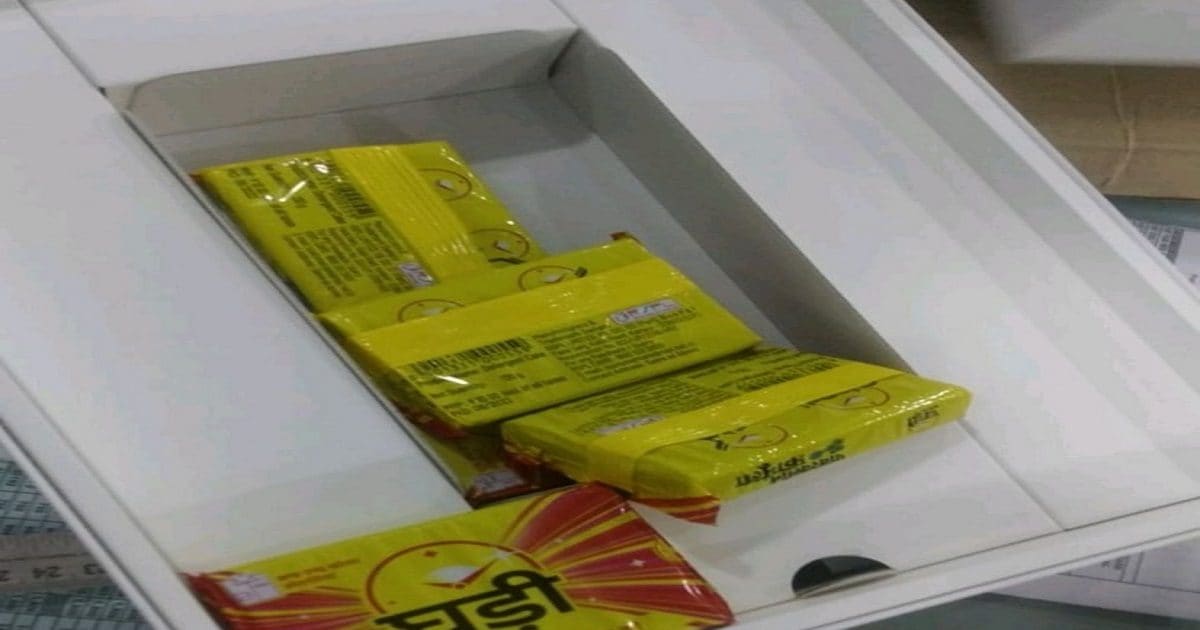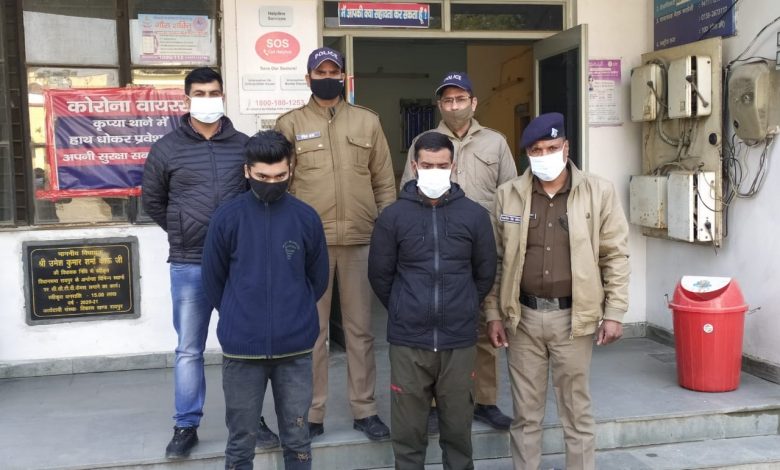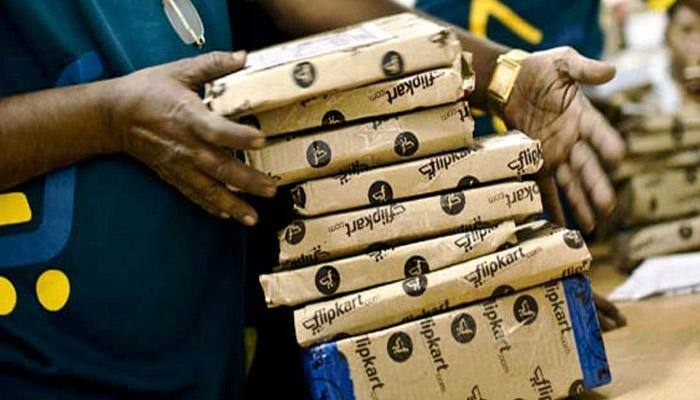Flipkart Big Billion Day Sales or Flipkart Big Scam Day Sales?

Yashawi Sharma, an IIM Ahmedabad student, shared on LinkedIn how he ordered a laptop for his father from Flipkart but received detergent bars instead.
Customers swarm to Flipkart’s “Big Billion Days Sale,” which provides substantial savings on a wide range of goods. Due to the high demand this time of year, consumers who prefer to purchase electronic goods should exercise caution. An IIM Ahmedabad student who ordered a laptop for his father experienced this.
Two days ago, Yashawi Sharma posted about his experience on LinkedIn, claiming that instead of the laptop his father had ordered during the “Big Billion Days Sale,” he had received “Ghadi” detergent bars. In order to verify that the product is authentic, the delivery agent opens the box in front of the customer, according to the “open box delivery concept,” which the son claimed his father was unaware of. The customer then offers an OTP after making sure the item is undamaged.
Sharma, however, alleged in the post that the delivery person neglected to tell his father about the idea and shared the OTP without first authenticating the item, as is customary. He insisted that he had CCTV footage that showed the delivery person entering and exiting without looking inside the box.
When the box was unboxed, it was found that there were only detergent bars inside, not a laptop. He also posted a photo of it. However, the most senior member of Flipkart’s customer support team claims there is no chance of a return. Before looking over the laptop, your father should not have given you the OTP. This is our final position. This situation cannot be escalated further,” he wrote.
In another post, Sharma stated that he spoke with the delivery agent, who stated that he was also unaware of the ‘open box concept.’ The agent also admitted that the package was not inspected in his presence. Sharma revealed that one of his relatives had filed a complaint with the appropriate proof at a local police station.

Meanwhile, Sharma stated that Flipkart contacted him to notify him that a refund had been processed and that he was awaiting it. Flipkart issued a statement regarding the incident, stating that their customer service team had begun the refund process.
“Flipkart has a zero-tolerance policy for any incident that undermines customer trust,” according to the company’s statement. Our objective is to provide our customers with the best possible online shopping experience. In this instance, where Open Box Delivery was an option, the customer gave the delivery person the OTP without ever opening the package. Our customer service team verified the incident’s specifics before starting the refund process, which will take 3–4 working days to complete. We’ve identified the problem and taken action against the offending party.
The Open Box Delivery program at Flipkart is committed to defending the interests of its customers. The product is opened in front of the customer as part of the Open Box Delivery procedure by Flipkart Wishmasters (the delivery partner). Customers must accept the delivery only when their orders are complete and then share the OTP. This eliminates the customer’s financial liability. The company claimed that this was a continuation of the numerous initiatives it had started over the years to enhance the general customer experience and create a superior supply chain.
More examples of such scams by Flipkart
Shocking! When a Flipkart customer orders a Rs 53,000 iPhone 12, he receives a Rs 5 soap inside the box.
A Flipkart customer was surprised when the package, which he had ordered a smartphone for during the Big Billion Days Sale, showed up at his door.
The customer in question had ordered an iPhone 12, which was on sale at a significant discount at the time. However, when he received the smartphone, he was surprised to find a Rs 5 soap bar inside the box, rather than the iPhone 12, according to Gizmochina.
While Flipkart is a reliable e-commerce platform for purchasing expensive items such as smartphones, the incident has shocked many. According to the report, a user named Simranpal Singh recently made the audacious claim that he received a soap at the time of delivery.
In addition, the report stated that the customer received two pieces of Nirma soap instead of the smartphone. Furthermore, the video posted by the smart customer who refused to share the OTP with the delivery partner has been updated by a page called GoAndroid.

If he had shared the OTP, it would have indicated that the customer had received the order. He also complained about the ecommerce giant’s customer service, and Flipkart reportedly accepted the mistake after a few days of effort and negotiations with the delivery person.
Flipkart has also cancelled the order and begun the refund process. According to reports, the customer has received the funds in his bank account.
Customers should exercise extreme caution when receiving high-value orders. For example, they should only open such orders in front of the delivery personnel.
Delivery boys replace goods, stealing Rs 10 lakh from Flipkart
Three Delhi residents working for a courier company hired by Flipkart to deliver goods have been arrested for allegedly stealing around Rs 10 lakh from the e-commerce company over the last three months.
According to police, the three accused, who worked as delivery boys, would order computer hardware online. They would then replace the original products with duplicates or goods of a lower quality and return the consignment to the company, claiming that the customer could not be found.
On Sunday, three men — Raju Arora, Rinku Gaur, and Asif Ahmed — were apprehended near Ramprastha Engineering College Tri-section. The police said they recovered computer external hard drives worth Rs 2.5 lakh from their possession.
The gang was led by Sumit Gupta, a resident of Birbal Road in Delhi’s Lajpat Nagar who is currently on the run. Jai Prakash Chaubey, SHO of Link Road, explained the fraud’s methodology. For Flipkart, Gupta “used to hire delivery boys.” The three men would use forged SIM cards to place bulk orders at fictitious addresses. They would choose ‘cash on delivery and ensure that the consignments fell within their operational area.”
Then, according to the officer, “they would call the person posing as the customer and request that the order be cancelled or delivered at a later date.”
In such a case, Flipkart rules require the product to be returned to the company. The package would be returned by the three delivery boys, but only after the products inside had been replaced.

According to the SHO, Gupta paid Rs 10,000 to the delivery boy and Rs 1,000 to the person posing as the customer for each consignment. Flipkart discovered the fraud after noticing a pattern in the types of products being returned. According to an official, they conducted an internal investigation before approaching the Link Road police station.
“The company has now directed its courier partners to conduct a thorough background check of their employees,” said Nishant Mehra, Flipkart’s assistant manager (security). It has also decided to deliver bulk orders via ‘cash on delivery’ only after verifying consumers’ identities.”
Flipkart’s’mystery shopping’ initiative identifies 250 fraudulent sellers.
Flipkart, the world’s largest ecommerce platform, has blacklisted 250 sellers on its platform after its ongoing ‘mystery shopping’ initiative discovered them to be selling substandard products.
More than 300 Flipkart employees and staff from a leading consultancy firm have shopped on Flipkart.com since the initiative’s inception six months ago. Known as ‘secret agents,’ they identify subpar products or packages and send images to an email address that a Flipkart security team processes.
“More than 600 sellers have provided us with feedback.” According to Sachin Kotangale, senior director at Flipkart, “We took appropriate action against 500 individuals and blacklisted 40–50% of them.”
He claimed that the majority of the identified sellers were either selling low-quality products, failing to deliver on time, or using incorrect packaging or price labeling. Based on the fraud committed by these sellers, the e-commerce giant is taking action against them.

Sellers who fail the ‘quality check’ must go through training on how to deliver goods, pack them, and so on, he said. Flipkart currently has 85,000 sellers on its platform.
Multiple cases of counterfeits being sold online prompted top eCommerce players to implement quality control measures for sellers on their platforms. Buyers from major online shopping sites have recently complained about fake products supplied by some sellers. These items include counterfeit versions of well-known brands’ headphones, shoes, cosmetics, bags, USB drives, and watches.
“As eCommerce companies grow in size, the problem will only worsen because verifying lakhs of sellers is impossible,” said Arvind Singhal, chairman of consultant Technopak Advisors. Even Alibaba, the biggest online retailer in the world, is dealing with an influx of fake and phony goods, he claimed.
Aside from selling counterfeit goods, online sellers have begun to engage in unethical practices such as buying out competitors or purchasing their own inventory online in the hopes of receiving cash back from websites.
“We do not provide cashback. “However, we have seen some sellers stock out rivals by simply ordering and then returning their goods,” Manish Maheshwari, Flipkart’s head of seller ecosystem, told ET in October.
The data science team at Flipkart is also developing a system to detect fake product reviews and inflated star ratings on the platform. Its competitors, including Alibaba-backed Paytm and Amazon India, have also implemented measures to identify rogue sellers on their platforms. Last year, Paytm blacklisted approximately 3,000 fake sellers.
Edited by Prakriti Arora



